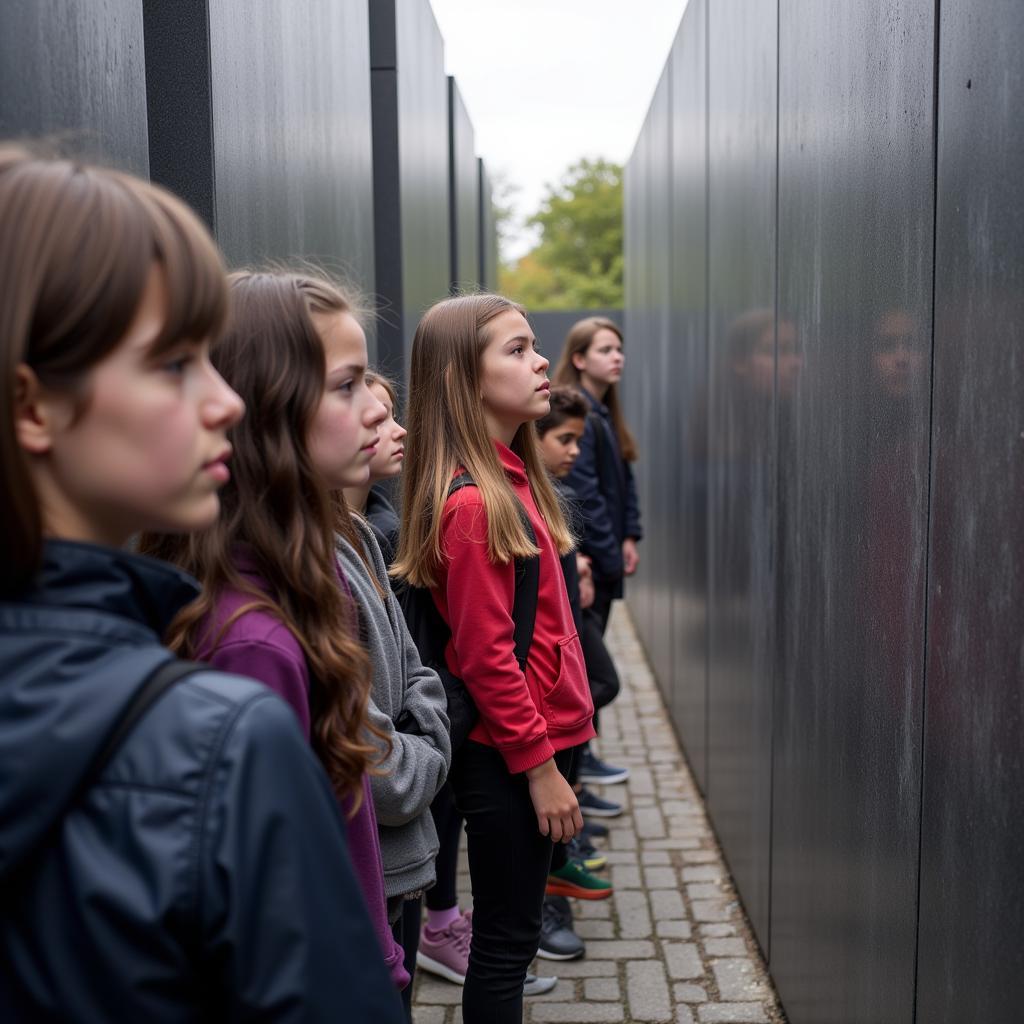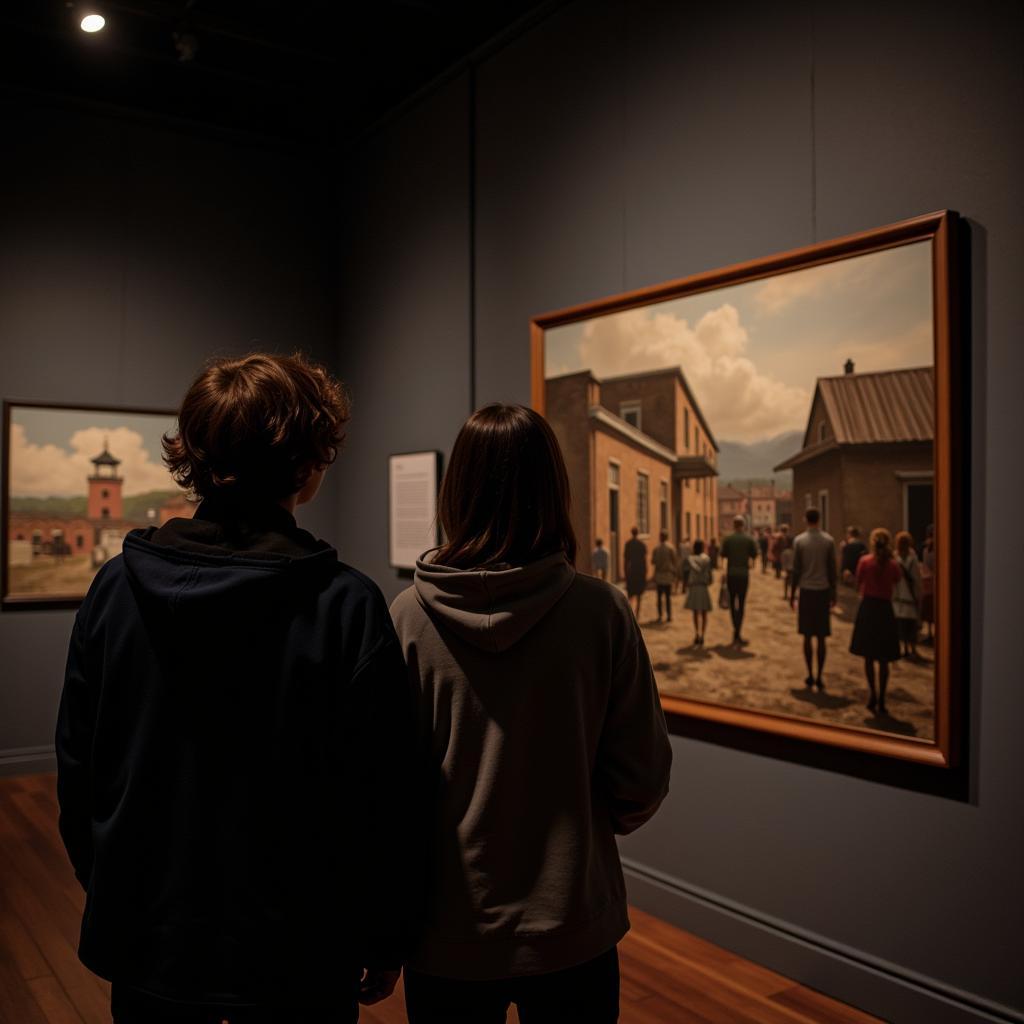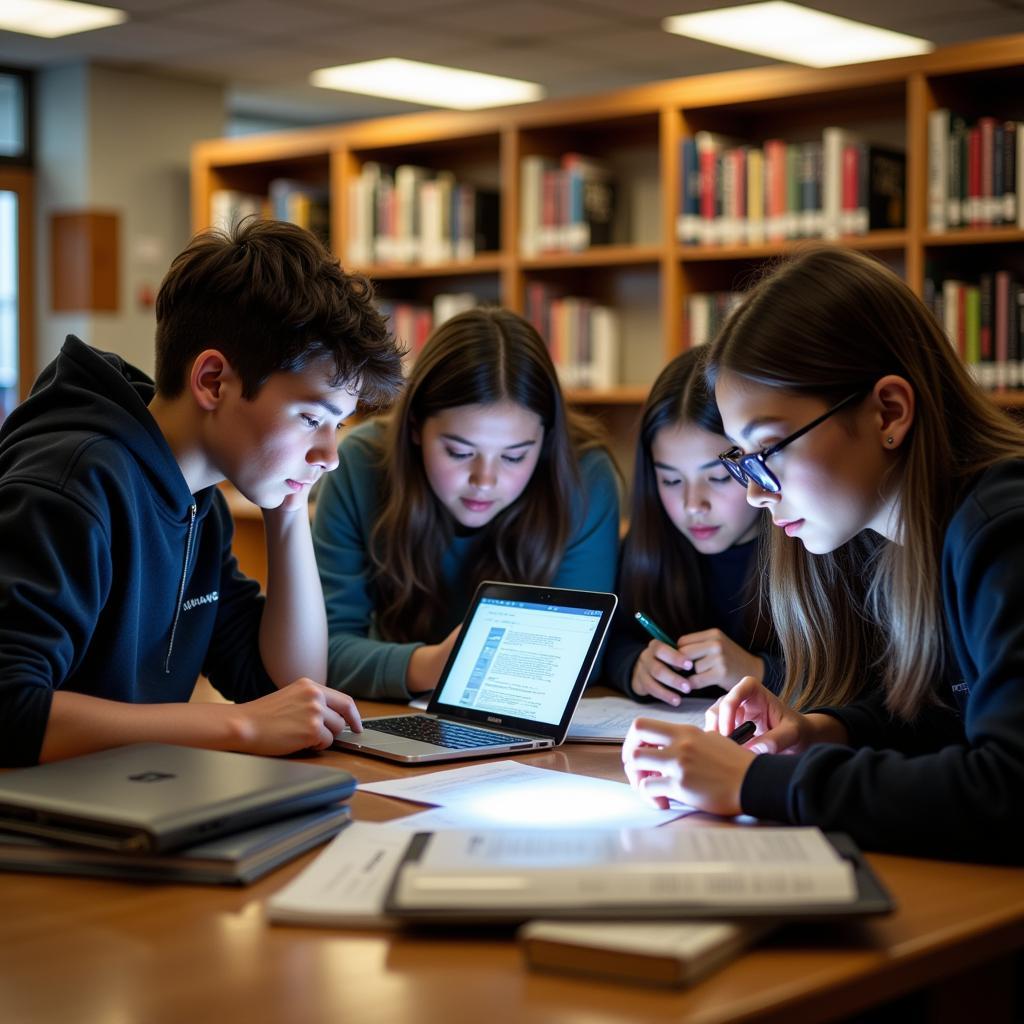The Holocaust, a period of systematic, state-sponsored persecution and murder of six million Jews by the Nazi regime and its collaborators, stands as a stark reminder of the devastating consequences of hatred and intolerance. Engaging in Holocaust research projects at the middle school level provides a crucial opportunity for young minds to grapple with this complex and tragic historical event.
 Students visiting a Holocaust memorial
Students visiting a Holocaust memorial
Through carefully guided research, students can develop a deeper understanding of the Holocaust’s causes, events, and lasting impact while cultivating essential critical thinking skills and fostering empathy and compassion.
Choosing a Holocaust Research Project
Selecting an appropriate research project is crucial to ensuring a meaningful learning experience for middle school students. The project should be age-appropriate, engaging, and aligned with curriculum objectives. Here are a few ideas for Holocaust research projects suitable for middle school:
1. Individual Stories of Resilience:
Researching and presenting the story of an individual who experienced the Holocaust can be incredibly impactful. Students can explore the life of a Holocaust survivor, rescuer, or even a perpetrator, delving into their personal experiences, motivations, and the choices they faced.
2. The Power of Art and Music:
The Holocaust elicited a profound artistic response, with many victims and survivors expressing their experiences through various art forms. Students can research a specific piece of art, music, or literature created during or about the Holocaust, analyzing its message and significance.
 Students observing artwork in a Holocaust museum exhibition
Students observing artwork in a Holocaust museum exhibition
3. Resistance During the Holocaust:
Despite unimaginable circumstances, acts of resistance against the Nazi regime emerged from individuals and groups. Students can research and present on different forms of resistance, from armed uprisings to acts of spiritual defiance, highlighting the courage and determination displayed in the face of oppression.
Navigating Sensitive Topics
Addressing the Holocaust with middle school students requires sensitivity and careful consideration. It’s essential to:
- Create a Safe Space: Foster an open and supportive classroom environment where students feel comfortable asking questions and sharing their thoughts and feelings.
- Provide Age-Appropriate Resources: Utilize materials that are accurate, reliable, and presented in a way that is accessible and engaging for young learners.
- Focus on Individual Stories: Humanizing the Holocaust by sharing personal accounts of resilience, courage, and hope can make the history more relatable and impactful for students.
 Students collaborating on a Holocaust research project
Students collaborating on a Holocaust research project
The Importance of Holocaust Education
Teaching about the Holocaust is not just about imparting historical facts; it’s about instilling vital life lessons that transcend generations. By engaging in Holocaust research projects, middle school students can:
- Develop Critical Thinking Skills: Analyzing primary and secondary sources, evaluating different perspectives, and constructing well-researched arguments are essential skills honed through historical research.
- Cultivate Empathy and Compassion: Learning about the experiences of victims and survivors encourages students to develop a deeper understanding of human suffering, resilience, and the importance of treating others with respect and dignity.
- Recognize the Dangers of Prejudice and Discrimination: Understanding the historical context and consequences of antisemitism and other forms of intolerance is crucial to preventing similar atrocities from happening again.
Conclusion
Holocaust research projects offer middle school students a powerful avenue to engage with a pivotal moment in history, developing crucial critical thinking skills while cultivating empathy and understanding. By approaching this sensitive subject with care and guidance, educators can empower students to learn from the past and become responsible and compassionate citizens of the world.